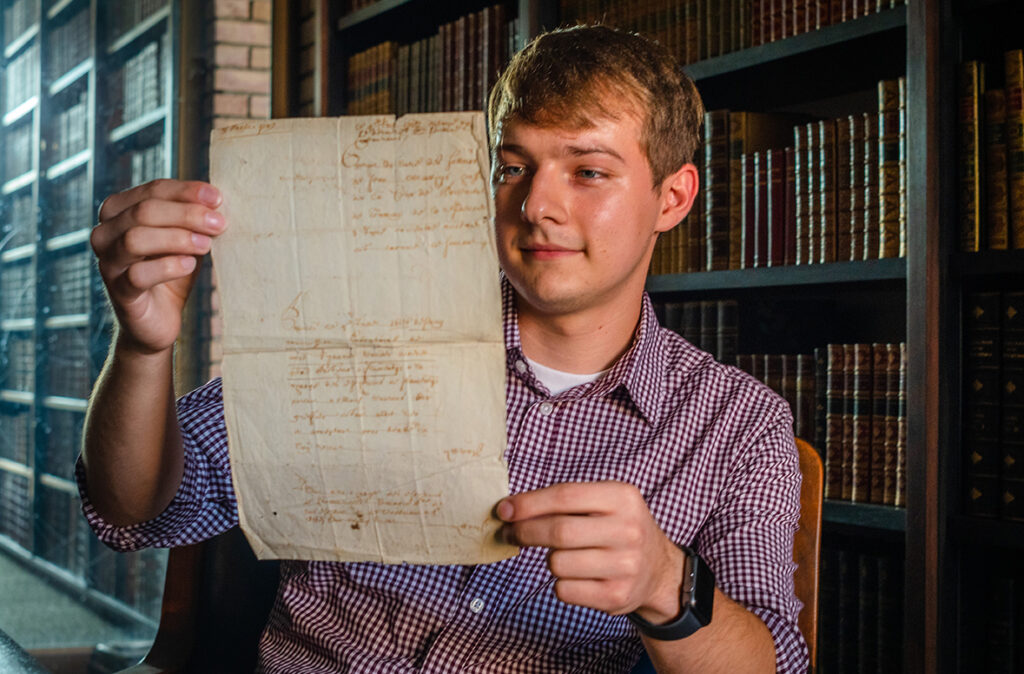Manuscript lost in WWI fire turns up in Clark Archives

In 1914, the German army set fire to the town of Leuven, Belgium, deliberately burning the circa-1425 library at the university in Leuven (KU Leuven) along with the 300,000 books, 800 incunabula (books and pamphlets printed in Europe before the year 1500), and 1,000 manuscripts in it. This summer, Archivist Cynthia Shenette and intern Dillon Prus ’21 discovered in Clark’s Archives and Special Collections a 17th-century manuscript that was saved from the fire at KU Leuven 107 years ago — and are arranging for it to be returned to Belgium before a milestone celebration.
The discovery was made by Shenette, who, in taking her post as Clark’s archivist in March 2021, was cleaning a filing cabinet filled to the brim with business documents for the Archives and Special Collections area dating back 50 years. When they came across the manuscript, which was reported to have been pulled from the ruins of the Université Catholique de Louvain library in 1914 by a British war correspondent and donated to Clark in 1918, “we knew immediately that it was something special,” Prus says.
“When I found the document in a random file, I thought Dillon might be interested in contacting the library to see if they wanted their document back. According to information in the file, an attempt was made to return the document back in the 1980s, but we never received a response,” said Shenette. “I thought it might be worth trying again, since the world is a smaller place these days with the internet. An email is definitely more efficient and more likely to find its way to the right person in 2021 than snail mail was in 1981.”
When Prus emailed a photo of the manuscript to Tjamke Snijders, head of the KU Leuven Libraries Special Collections, he received an enthusiastic response. Snijders wrote that she was “very excited to get the chance to re-integrate this lost fragment into our collections again,” adding that the manuscript resembles a 17th-century bill in which a Flemish pastor orders a member of his flock to pay his debt at the Tournai Parlement.
“We are definitely going to take a closer look at it and see if we can find out what its old signature might have been. That is going to be an interesting puzzle,” she wrote in an email.
Prus said that getting a response from Leuven was “surreal.”
“It’s not every day that we can, in a very tangible way, right a historical wrong and help restore what was tragically lost in war,” said Prus, who spent the summer interning in Clark’s Archives and Special Collections and is working on his master’s degree in history before heading to medical school next year. “My hope is that the page of the manuscript proves useful to KU Leuven’s extensive collection and that this new piece of knowledge can be used by historians in a meaningful way.”
Snijders expressed an interest in sharing the story about the manuscript’s journey when the library celebrates its 600th anniversary in 2025.
Shenette said trying to send the document home after 100-plus years in Worcester has been “a fun and exciting process.”


